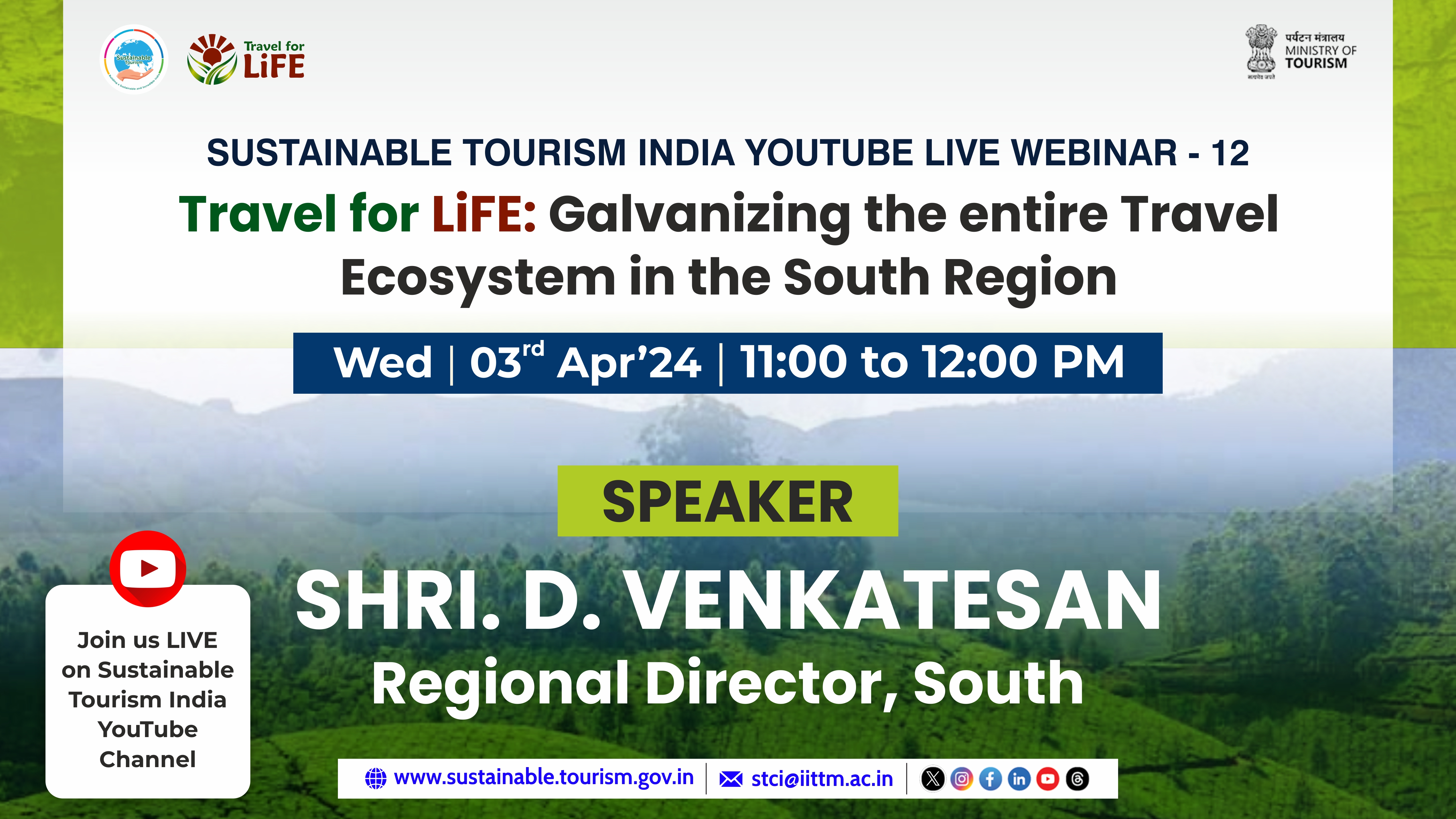
Ministry of Tourism held the twelvth episode of the Sustainable Tourism India YouTube LIVE webinar on the topic "Travel for LiFE: Galvanizing the entire Travel Ecosystem in the South Region" at 11:00 AM on April 3rd. The webinar aimed to discuss "Sign up" and "Certification" for tourism stakeholders in developing a sustainable and responsible tourism value chain. Shri. D. Venkatesan, Regional Director, India Tourism Chennai , was the special guest who provided adequate knowledge and benefits about the Travel for LiFE program.
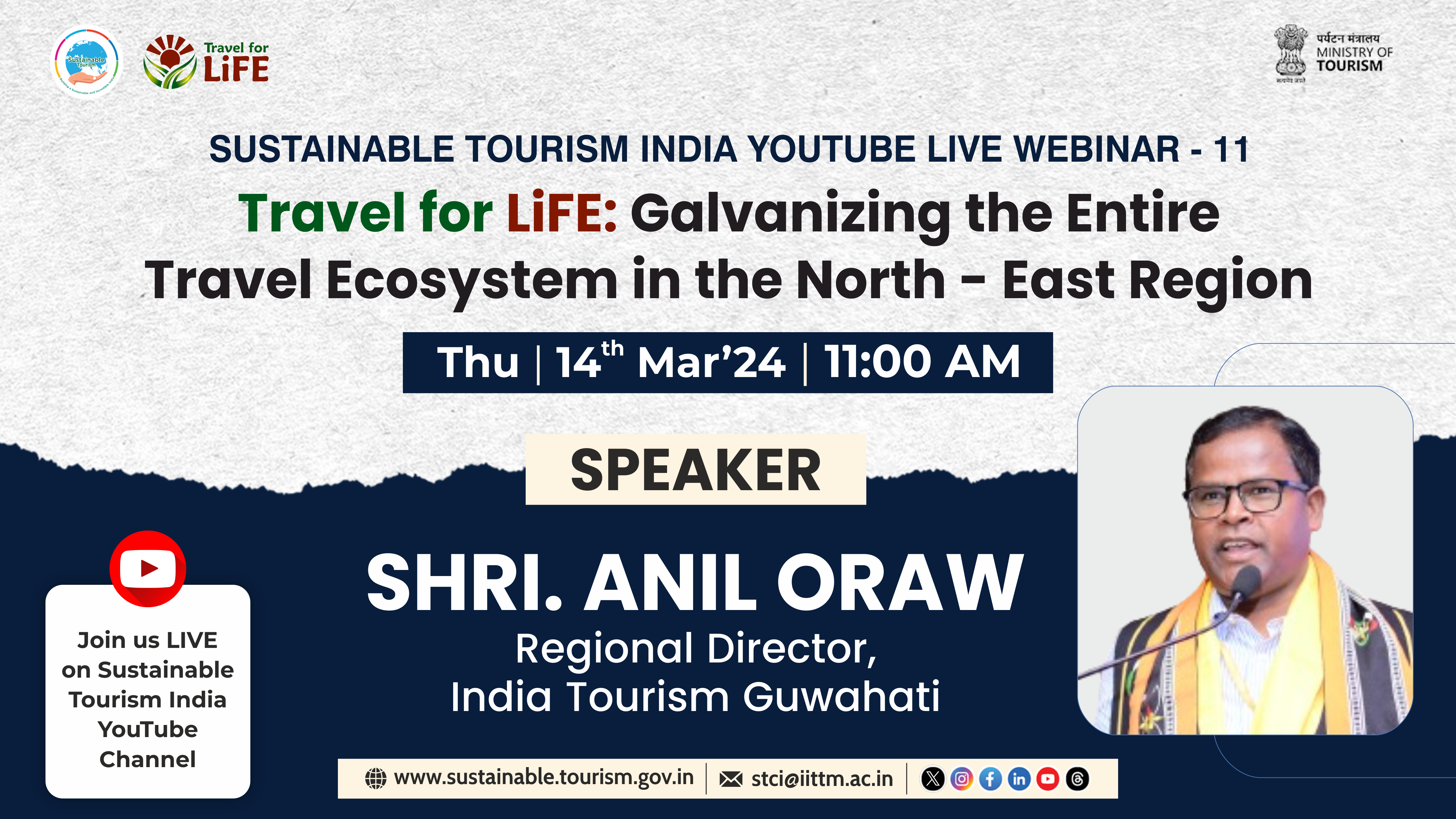
Ministry of Tourism held the eleventh episode of the Sustainable Tourism India YouTube LIVE webinar on the topic "Travel for LiFE: Galvanizing the entire Travel Ecosystem in the North-east Region" at 11:00 AM on March 14th. The webinar aimed to discuss "Sign up" and "Certification" for tourism stakeholders in developing a sustainable and responsible tourism value chain. Shri. Anil Oraw , Regional Director, India Tourism Guwahati, was the special guest who provided adequate knowledge and benefits about the Travel for LiFE program.

Ministry of Tourism held the tenth episode of the Sustainable Tourism India YouTube LIVE webinar on the topic "Travel for LiFE: Galvanizing the entire Travel Ecosystem in the North Region" at 3:00 PM. The webinar aimed to discuss "Sign up" and "Certification" for tourism stakeholders in developing a sustainable and responsible tourism value chain. Dr. R.K. Suman, Regional Director, India Tourism Delhi, was the special guest who provided adequate knowledge and benefits about the Travel for LiFE program.
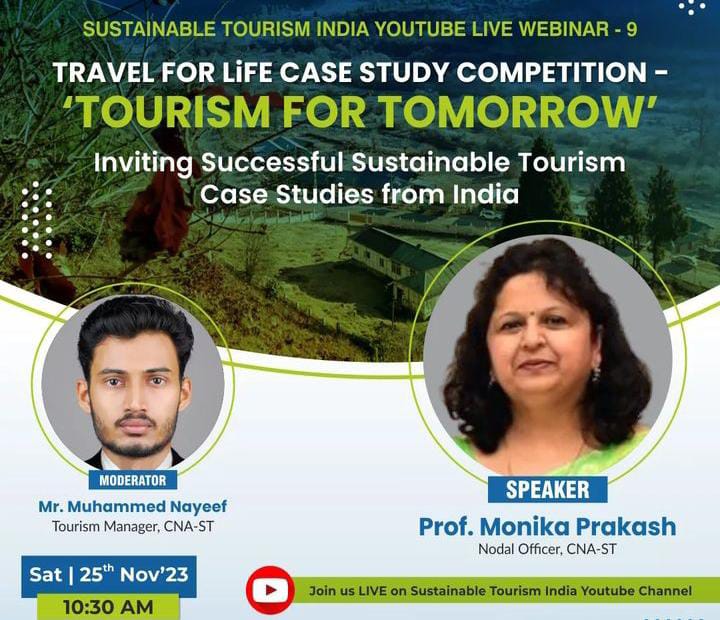
The ninth episode of the Sustainable Tourism India YouTube webinar was discussed on the topic Travel for LiFE Case Study Competition - 'Tourism for Tomorrow'. Prof. Monika Prakash, our esteemed Nodal Officer for CNA-ST, lead the webinar, offering insights into the competition, guiding application submissions, detailing the guidelines and addressing all queries.
India's 'Goa Roadmap,' a pioneering initiative towards global sustainable tourism, highlights five key priority areas from the G20 Tourism working group meeting. It plays a important role in influencing society, the economy and the environment to work towards achieving the Sustainable Development Goals.
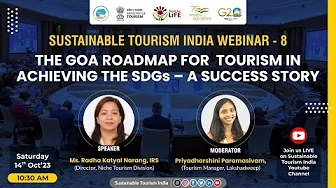
The eighth episode of the Sustainable Tourism India YouTube LIVE webinar will took place on Saturday, October 14th, 2023, featuring the topic 'The Goa Roadmap for Tourism in achieving the SDGs - A Success Story.'
Ms. Radha Katyal Narang, IRS, shares her experience as she has taken the lead in various G20 Tourism Working Group Meetings and played an important role in shaping the Goa Roadmap for Tourism, leading us towards the sustainable development goals.
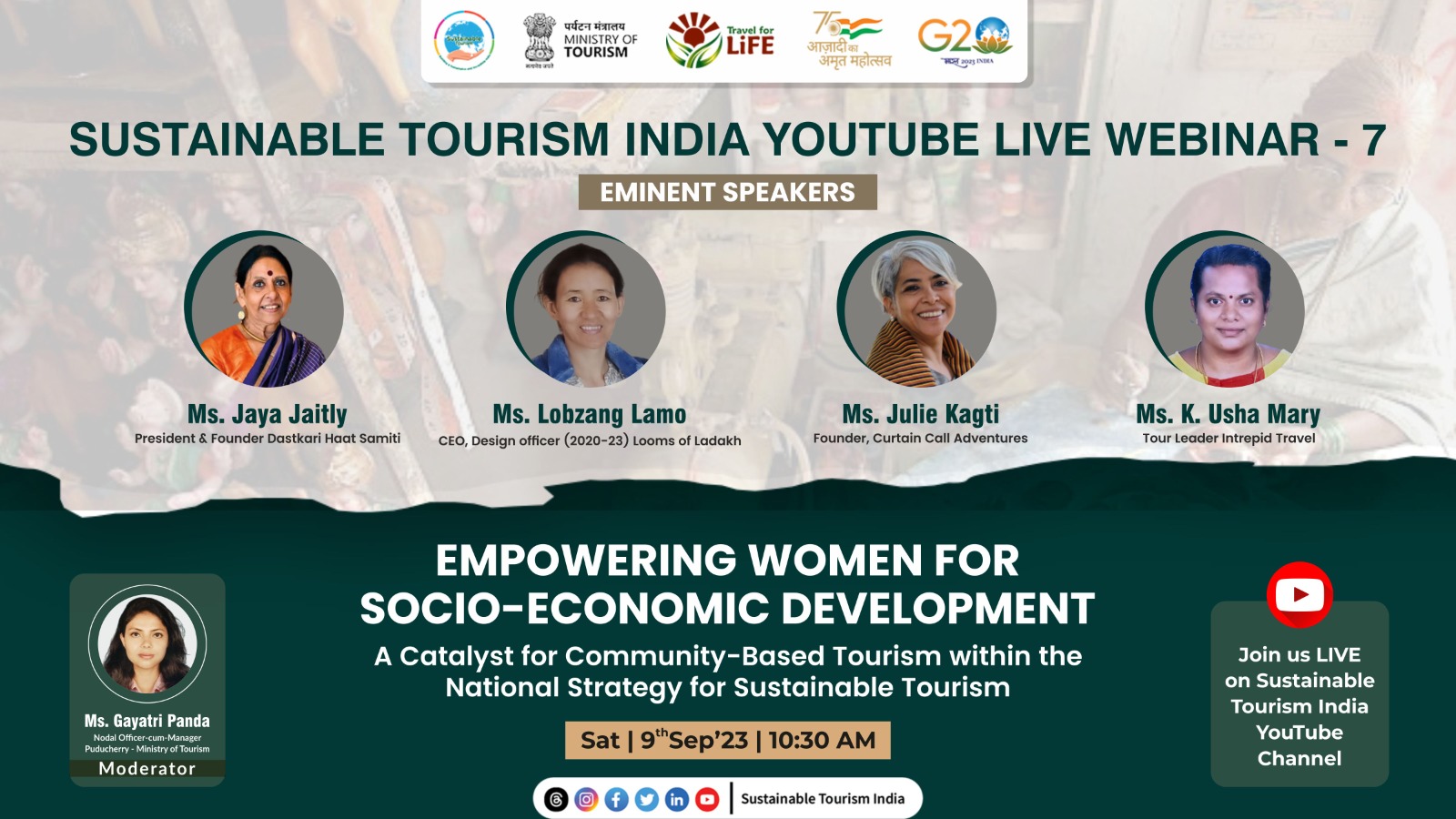
By empowering women to actively participate in the tourism industry, we not only promote social and economic development but also enhance the inclusivity and diversity of the sector. Furthermore, aligning these efforts within the national strategy for sustainable tourism ensures that these initiatives are part of a larger framework aimed at preserving natural and cultural resources.
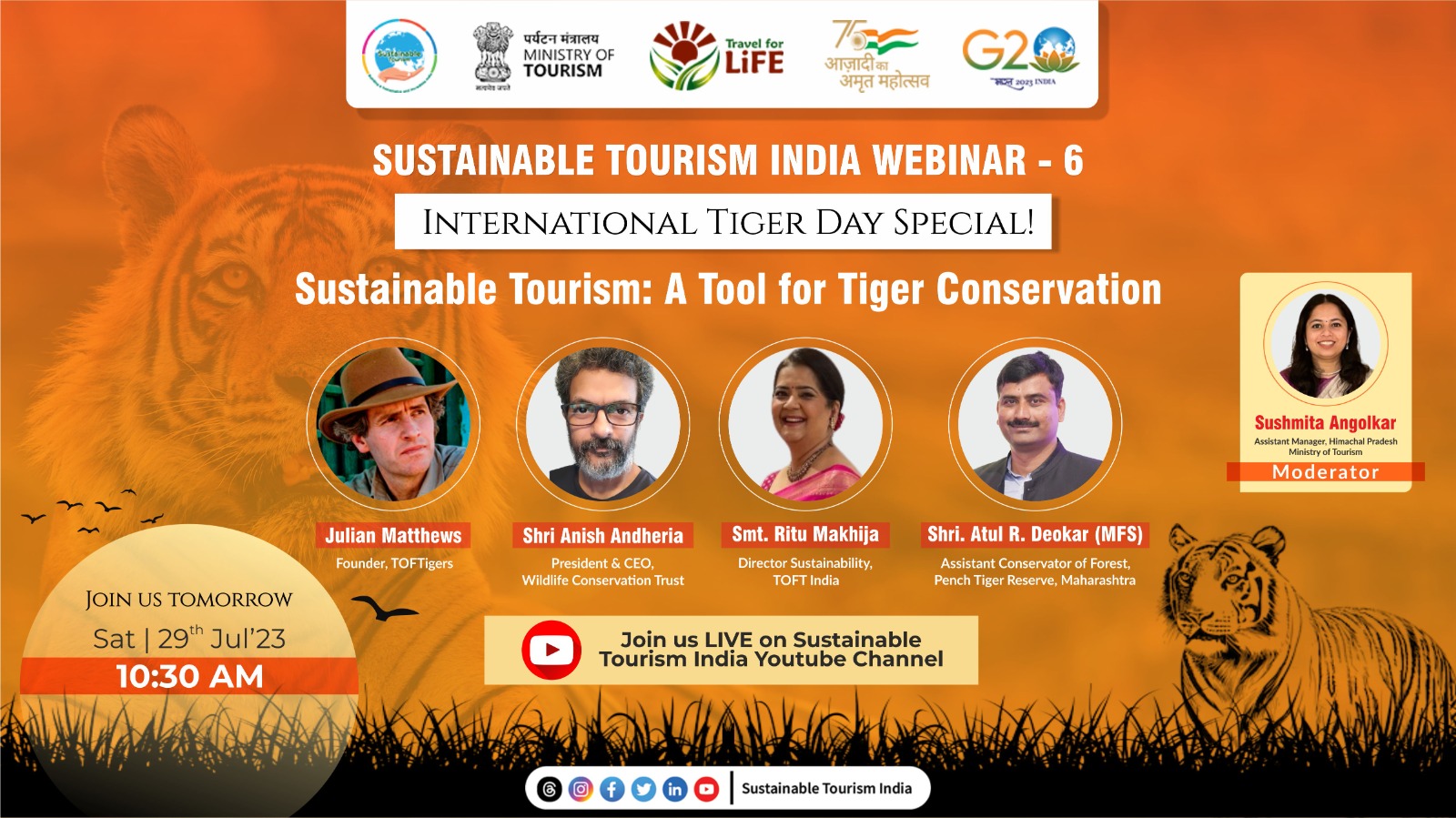
Tourism can be a powerful tool for tiger conservation, but it must be managed responsibly to ensure that it does not have negative impacts on tigers, their habitats, or local communities. The tiger and tourism debate can go on for centuries like that, but it is also important to remember that responsible ecotourism can provide a sustainable source of income for local communities while also promoting the conservation of tigers and their habitats. To maximise the positive impact of tourism on tiger conservation, it is important to work with local communities and stakeholders to develop and implement sustainable tourism practices that prioritise the long-term health of tigers and their habitats.
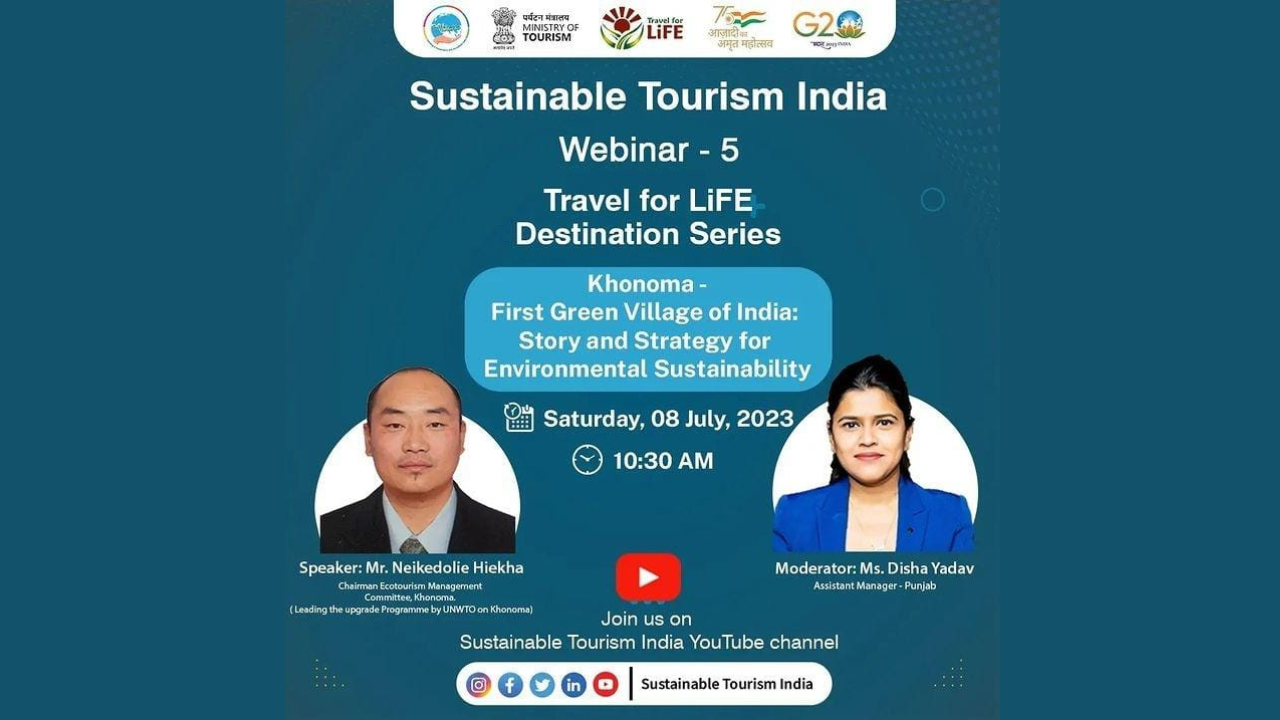
Khonoma is India’s first green village. Situated near the Indo-Myanmar border, in the Indian state of Nagaland, its journey to attain the tag of a Green Village was not an easy one, as hunting is embedded as a way of life in the people here.
The first step that was taken in this regard was the creation of the Khonoma Nature Conservation and Tragopan Sanctuary (KNCTS) in 1998. This led to a ban on hunting in Khonoma after a 20 sqkm area was demarcated by the village council as the KNTCS. For the Angami tribe, which calls this village their home, hunting was their sacred cultural practice. After facing lot of challenges, the village council began inviting experts from various conservation organizations in India to conduct educational workshops and speak to Khonoma’s residents. It took five years of dialogue with the villagers that eventually led to the creation of the KNTC, the first-ever community-led conservation project in India.
Twenty years on, the green warriors of Khonoma village are still fighting a battle within and have taken efforts to overcome ecological challenges.
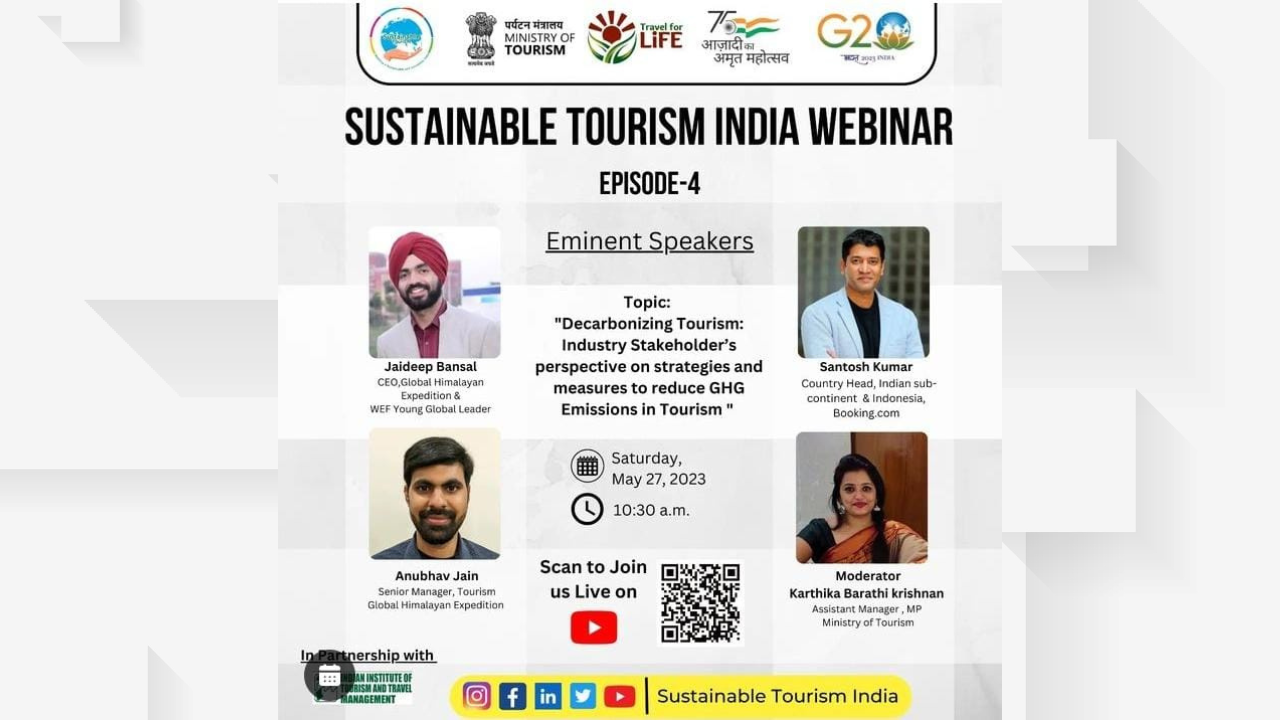
The tourism industry in India holds significant potential for decarbonisation, providing an opportunity to reduce its environmental impact. Decarbonisation strategies can be implemented across various aspects of tourism, including transportation, accommodation and food services. Promoting sustainable practices such as energy efficiency, renewable energy adoption, sustainable transportation options and green building designs can significantly reduce emissions in the tourism sector. Integration of sustainable practices into tourism operations, waste management, water conservation and the use of eco-friendly materials can further contribute to decarbonisation efforts.
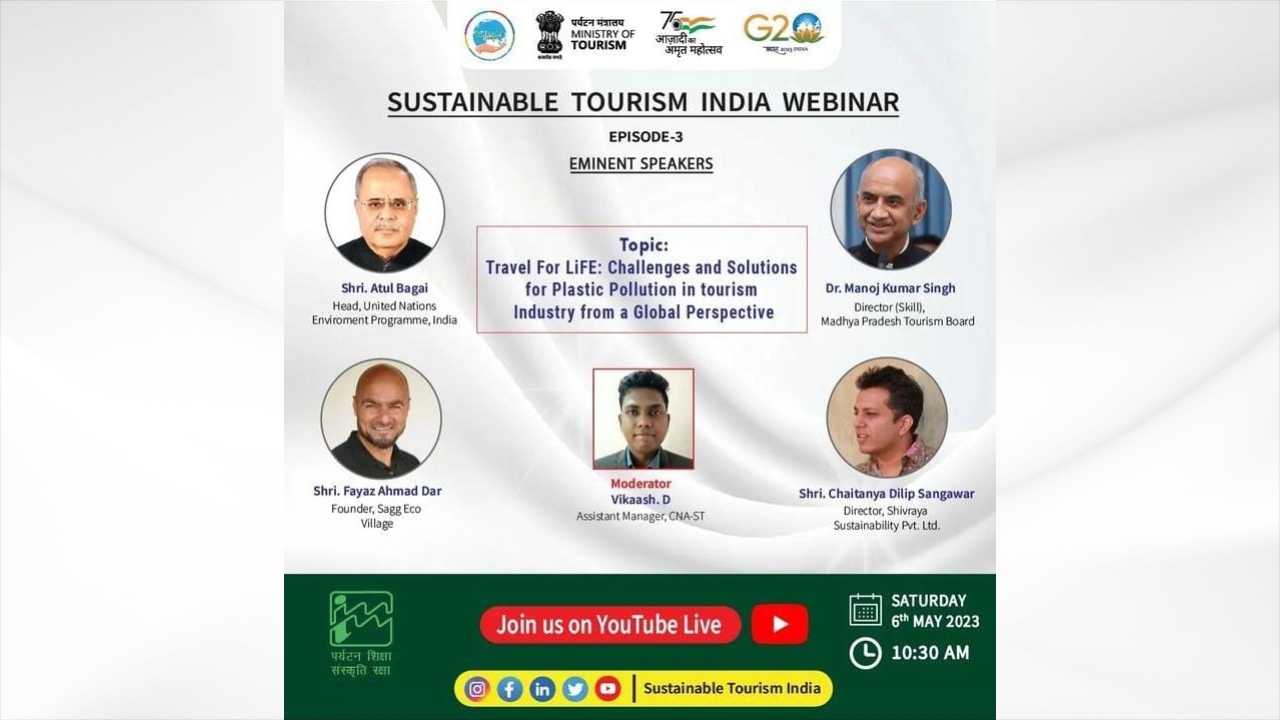
The Ministry of Tourism recognizes environmental sustainability as one of the principles of sustainable tourism. It will involve making the best use of environmental resources, which are critical to tourism growth as well as maintaining vital ecological processes and contributing to the preservation of natural heritage and biodiversity.
Tourism is a significant user of resources in many areas and efficient resource use is essential both for the wellbeing of the local environment and host community, as well as for the preservation of global resources. A fair balance between the requirements of local communities and the tourism industry is required. Tourism resource efficiency can be greatly improved by changing the consumption habits of visitors and tourism businesses. Enterprises must create environmental management systems to minimize impacts and drive a continuous improvement process.
For enhancing sustainable production and consumption necessities, the issue needs to be addressed by promoting the sustainable use of plastics like plastic manufacturing must be drastically reduced, particularly of single use, low value and disposable plastics.
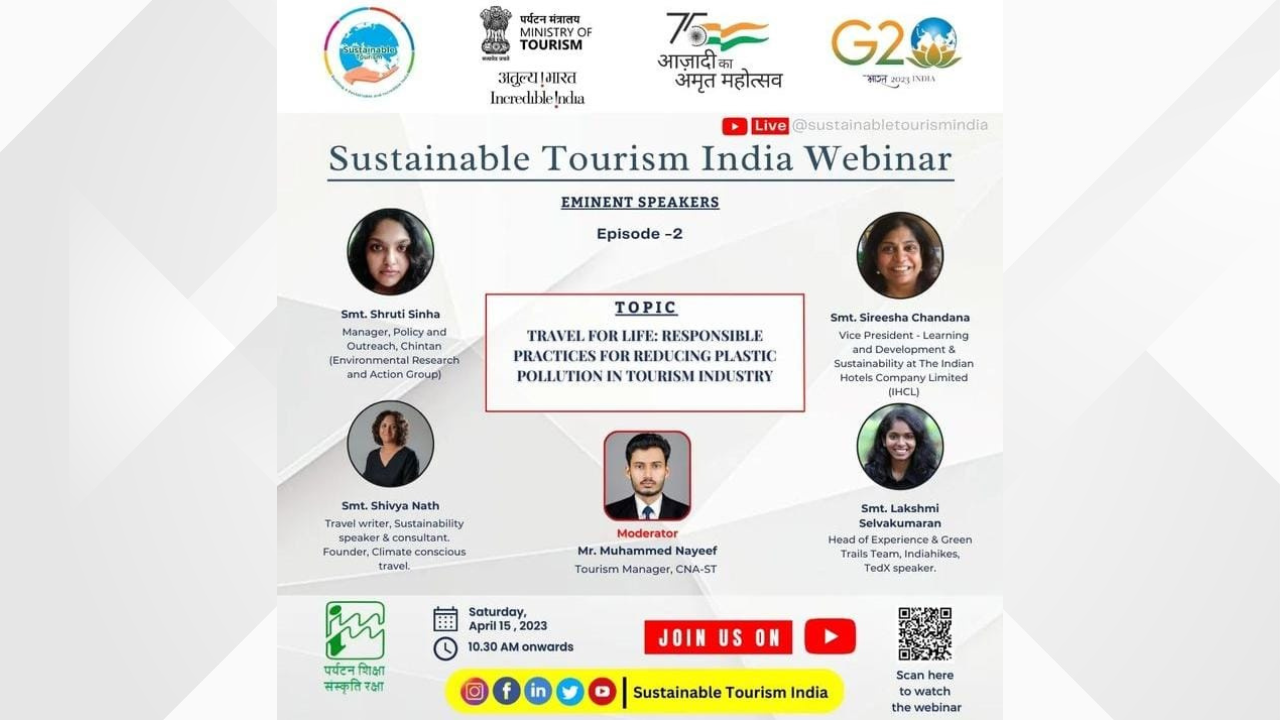
The Ministry of Tourism recognizes environmental sustainability as one of the principles of sustainable tourism. It will involve making the best use of environmental resources, which are critical to tourism growth as well as maintaining vital ecological processes and contributing to the preservation of natural heritage and biodiversity.
Tourism is a significant user of resources in many areas and efficient resource use is essential both for the wellbeing of the local environment and host community, as well as for the preservation of global resources. A fair balance between the requirements of local communities and the tourism industry is required. Tourism resource efficiency can be greatly improved by changing the consumption habits of visitors and tourism businesses. Enterprises must create environmental management systems to minimize impacts and drive a continuous improvement process.
For enhancing sustainable production and consumption necessities, the issue needs to be addressed by promoting the sustainable use of plastics like plastic manufacturing must be drastically reduced, particularly of single use, low value and disposable plastics.
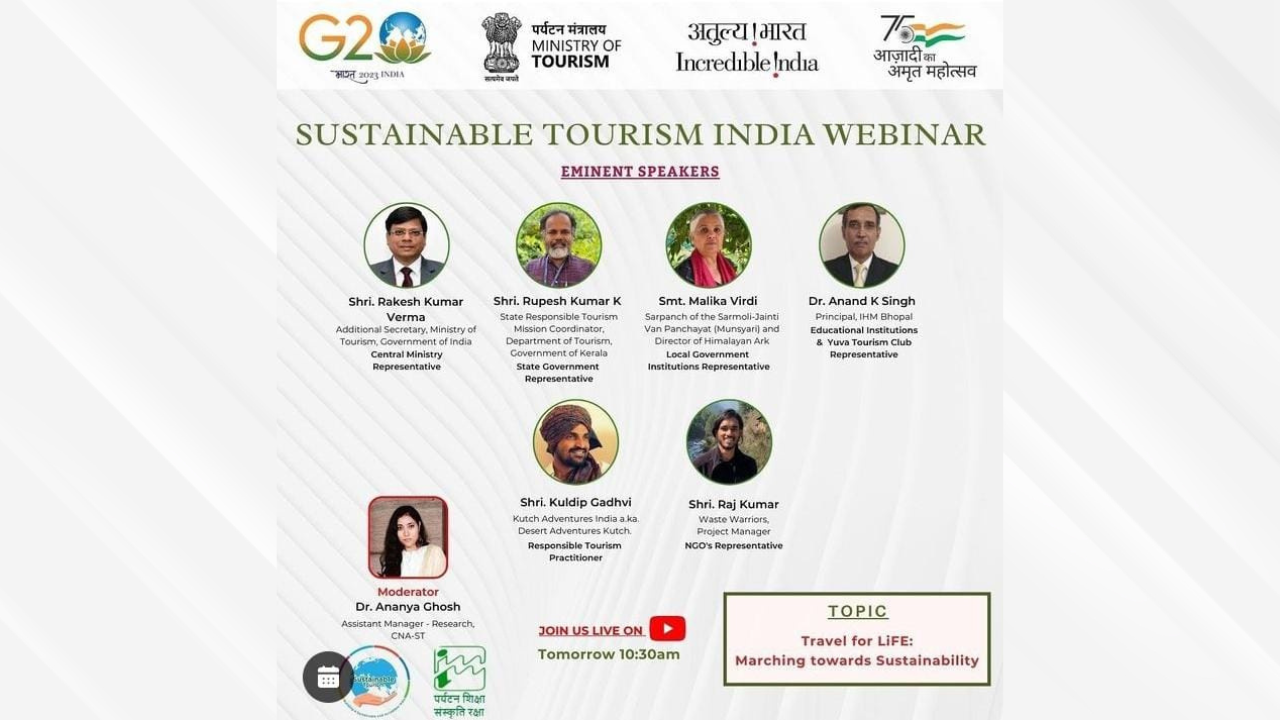
In order to bring individual behaviors to the forefront of the global climate action narrative, the Hon’ble Prime Minister of India, Shri Narendra Modi introduced the Lifestyle for Environment (LiFE) movement in 2021 during COP26 in Glasgow. Mission LiFE was formally launched by the Prime Minister Shri Narendra Modi on October 19, 2022 in presence of UN Secretary General António Guterres, at the Statue of Unity, Ekta Nagar, Gujarat.
In line with the philosophy of LiFE Mission, the Ministry of Tourism has launched the “Travel for LiFE” initiative for the tourism sector. Travel for LiFE calls for adopting travel habits in accordance with a lifestyle that supports the healthy thriving of the environment. With a vision to position India as a preferred sustainable and responsible tourist destination by greening the tourism sector through responsible production and consumption, Travel for LiFE brings to the focus individual action for mindful consumption of tourism resources.